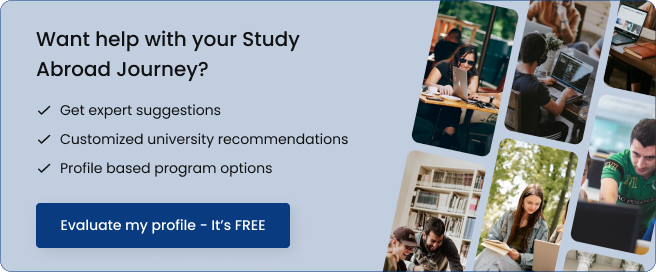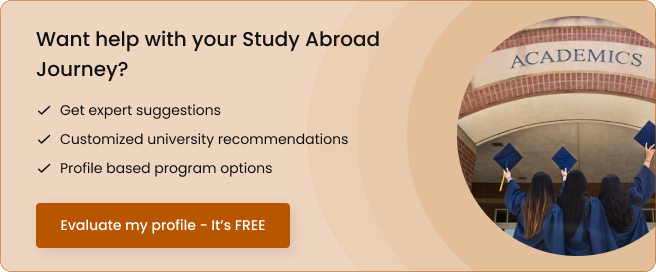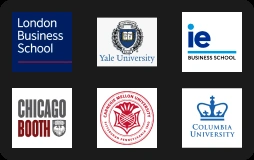
Masters in Finance (MFin) in USA: Everything You Need to Know
Thinking of pursuing an MFin in the USA? You’re not alone! The USA is home to some of the …
Table of Contents

Wondering if the University of Michigan Ross MBA is the best choice for you? Ross School of Business has gained an impressive reputation for its hands-on, action-based learning approach, particularly through its famous Multidisciplinary Action Projects (MAP). Imagine working on real-world problems for actual companies while you study—that’s the Ross advantage. But beyond academics, Ross is also known for its commitment to social impact and developing leaders with a strong ethical compass.
When it comes to choosing an MBA, there’s so much to consider. Are you looking for a program that aligns with your career goals, or maybe one that also matches your personal values? Ross might just be the right fit if you value leadership, real-world experience, and social responsibility. So, let’s dive in and explore everything you need to know about the Michigan Ross MBA—from admission details to fees, curriculum highlights, and what kind of career support you can expect.
When it comes to flexibility and real-world impact, the Michigan Ross MBA has you covered. Ross offers both full-time and executive MBA options, so whether you’re looking to immerse yourself completely or balance study with a career, there’s a pathway that fits. Let’s break down what makes Ross unique and how it’s structured to give you a hands-on, leadership-focused experience.
Program Option | Duration | Format |
| Full-Time MBA | 2 Years | In-person, Ann Arbor Campus |
| Executive MBA | 21 Months | Weekend classes, Ann Arbor and Los Angeles campus options |
| Online MBA | Varies | Fully online, flexible pace |
Ross is famous for its action-based learning approach, and a big part of this is the Multidisciplinary Action Projects (MAP). Think of MAP as a test run for real-world consulting: you’ll spend seven weeks working with a team on an actual project for a business or non-profit. You get to tackle real challenges, and companies get fresh solutions—a win-win! Besides MAP, leadership development is deeply embedded into the curriculum, with courses focusing on building skills that prepare you for high-stakes decision-making and team leadership.
Interested in combining your MBA with another field of study? Ross offers a variety of dual-degree options, allowing you to gain expertise across disciplines. Here’s a look at some popular options
Dual-Degree Option | Combined Focus Area |
| MBA/MS in Environment and Sustainability | For careers in sustainable business or environmental policy |
| MBA/MPP (Master of Public Policy) | Merges business strategy with public policy skills |
| MBA/JD (Juris Doctor) | Ideal for roles at the intersection of business and law |
These dual degrees add depth and value to your education and can be a great choice if you’re aiming for a specialized career path.
Curious about who you’d be sharing the classroom with at Ross? The University of Michigan Ross MBA class profile gives us a snapshot of a highly diverse, talented group from all over the world. Ross is intentional about creating a collaborative, inclusive environment that values varied perspectives. Let’s take a closer look at the demographics, academic stats, and professional experiences of the Ross MBA cohort.
Ross takes pride in its diversity—students come from various backgrounds, industries, and parts of the globe. This diversity enriches classroom discussions and fosters a vibrant, inclusive atmosphere. Here’s an overview of the current class profile:
Category | Percentage |
| Female Students | ~45% |
| International Students | ~30% |
| Underrepresented Minorities | ~20% |
These demographics show Ross’s commitment to building an MBA community that reflects a global workforce. The school actively promotes inclusivity and values collaboration across cultures, making it a great environment for growth and networking.
The Ross MBA is competitive, attracting high-achievers from diverse industries. Here’s what the academic and work experience profile looks like for a typical Ross MBA class:
Statistic | Average |
| GMAT Score | 710 |
| GRE Score | 160 (Verbal), 160 (Quantitative) |
| Average GPA | 3.5 |
| Average Work Experience | 5 years |
Most students come from backgrounds in finance, consulting, tech, and healthcare, although Ross also values unique paths like education, non-profit, and entrepreneurship. This diversity in experience means you’ll be surrounded by classmates who each bring a unique perspective to business challenges.
One of Ross’s defining qualities is its commitment to inclusivity and impact. The school fosters a culture that’s not just about academic achievement but also about building a community that gives back. Ross students often collaborate on community projects and social impact initiatives, contributing to a strong sense of camaraderie.
Ross’s student clubs, peer-led events, and mentorship programs create a supportive environment where students help one another grow. By joining Ross, you’re becoming part of a community that’s focused on making a positive difference, both in business and society.

The University of Michigan Ross MBA is known for its balanced approach to selectivity. With a relatively competitive acceptance rate, Ross seeks applicants who embody leadership, teamwork, and a commitment to making an impact. Let’s look at what it takes to be accepted into Ross and how you can make your application stand out.
Ross’s MBA acceptance rate hovers around 25-30%, which is on par with many top business schools. While this indicates a selective program, it also shows that Ross values diverse talents and backgrounds. In addition to academic achievement, Ross looks for candidates who fit well with its collaborative culture.
Metric | Percentage |
| Acceptance Rate | ~25-30% |
| Average GMAT Score | 710 |
| Average GPA | 3.5 |
| Typical Work Experience | 5 years |
Compared to other top MBA programs, Ross has a competitive but slightly more accessible rate, making it an attractive option for those with a well-rounded profile.
Ross’s admissions committee evaluates candidates holistically, focusing on both professional and personal qualities. Here are some key traits Ross values:
If you have a story about leading a team or working to create a meaningful impact, Ross would likely want to hear it. Highlighting these experiences in your application will show that you’re aligned with the school’s values.
Wondering how to make your application stand out? Here are some practical tips to help you align with Ross’s values and impress the admissions team:
Applying to a top MBA program like Ross can feel challenging, but if you align your application with the qualities the school prioritizes, you’ll have a competitive edge.
The University of Michigan Ross MBA consistently ranks among the top business schools in the U.S. and globally, recognized for its focus on experiential learning, consulting, and social impact. These rankings reflect Ross’s commitment to high-quality education, career outcomes, and student satisfaction. Let’s take a closer look at how Ross fares in major rankings and how it stacks up against other elite programs, especially in the Midwest and East Coast.
Ranking Authority | Ross MBA Rank |
| Financial Times (FT) | Top 25 globally |
| QS World University Rankings | Top 30 globally |
| U.S. News & World Report | Top 10 in the U.S. |
Ross consistently ranks within the top 10 U.S. MBA programs and in the top 30 worldwide. U.S. News & World Report often places Ross high on the list of U.S. programs, commending its strong faculty, robust curriculum, and excellent career outcomes. Financial Times and QS also give Ross high marks, particularly for its alumni network and career progression metrics, showing that a Ross MBA is highly respected globally.
Ross has made a name for itself in consulting, operations, and social impact. Let’s break down why these areas stand out:
Ross competes with several top-tier business schools in the Midwest and on the East Coast, including Northwestern’s Kellogg and University of Chicago’s Booth in the Midwest, as well as Harvard and Wharton on the East Coast. Here’s a quick comparison:
School | Key Strengths | Location |
| Michigan Ross | Action-based learning, social impact, operations | Midwest (Ann Arbor) |
| Kellogg (Northwestern) | Marketing, strategy, global network | Midwest (Evanston) |
| Booth (Chicago) | Finance, analytics, flexible curriculum | Midwest (Chicago) |
| Harvard Business School | General management, entrepreneurship, prestige | East Coast (Boston) |
| Wharton (UPenn) | Finance, real estate, global business | East Coast (Philadelphia) |
Compared to these programs, Ross stands out for its action-based learning approach and strong focus on social responsibility. While schools like Harvard and Wharton offer extensive networks and prestige, Ross offers a well-rounded experience focused on collaboration and practical impact, making it an appealing choice for students looking for a balanced, impactful education.
The Michigan Ross MBA curriculum is designed to provide a solid foundation in business fundamentals during the first year, followed by opportunities to tailor your learning through electives and hands-on projects. Ross emphasizes experiential learning—meaning you’ll spend as much time applying your knowledge in real-world scenarios as you do studying theory. Let’s explore what the Ross MBA journey looks like, starting with core courses and culminating in the famous MAP program.
In the first year of the Ross MBA, you’ll dive into a range of core courses that cover the essentials of business, from finance to strategy. This rigorous foundation prepares you to tackle complex challenges across industries, equipping you with the analytical and managerial skills needed for leadership roles.
Core Courses | Focus Area |
| Financial Accounting | Building financial literacy |
| Marketing Management | Understanding consumer behavior and marketing strategy |
| Corporate Strategy | Analyzing and developing business strategies |
| Operations Management | Optimizing processes and resources |
| Leadership in Organizations | Developing interpersonal and leadership skills |
These core courses ensure that all students, regardless of their background, develop a well-rounded skill set. From there, you’ll have the chance to choose electives and focus on areas that align with your career goals.
If there’s one thing that defines the Ross MBA, it’s the Multidisciplinary Action Projects (MAP). This action-based learning program is like no other, as it places students in real-world consulting projects for seven weeks. Instead of typical case studies, you’ll work in teams to solve an actual business challenge for a company or organization.
Students often describe MAP as one of the most transformative parts of their MBA experience, offering a “trial run” of the consulting and leadership roles they aspire to after graduation.
Once you’ve completed the core curriculum, Ross offers a wide selection of elective courses so you can tailor your MBA to your interests. Here’s a look at some popular electives and pathways:
Pathway | Popular Electives |
| Finance | Corporate Finance, Investment Management, Mergers & Acquisitions |
| Entrepreneurship | New Venture Creation, Entrepreneurial Strategy, Venture Capital |
| Social Impact | Business and Society, Impact Investing, Social Entrepreneurship |
| Operations | Supply Chain Analytics, Lean Operations, Quality Management |
Each pathway allows you to dive deep into specialized fields, whether you’re interested in launching a startup, making an impact through social ventures, or excelling in corporate finance. These electives offer flexibility to customize your MBA experience and prepare for specific career goals.
Financing an MBA is a major consideration for many students, and understanding the full cost of the Michigan Ross MBA can help you plan effectively. Let’s go over the tuition, living expenses, and additional fees you can expect, along with scholarship and financial aid options that make Ross accessible to a diverse group of students, including international students.
Here’s a look at the estimated cost for a full-time MBA student at Ross:
Expense Category | Cost (per year) |
| Tuition (Out-of-State) | $71,048 |
| Tuition (In-State) | $67,114 |
| Living Expenses | $20,000 |
| Books & Supplies | $1,716 |
| Health Insurance | $3,000 |
| Other Fees | $1,600 |
| Total (Out-of-State) | $97,364 |
| Total (In-State) | $93,430 |
The total estimated cost for out-of-state students is around $97,364 per year, and $93,430 for in-state students. Living expenses can vary depending on lifestyle, but Ross estimates around $20,000 annually for rent, food, and personal expenses in Ann Arbor.
Ross offers a variety of merit-based scholarships to help offset the cost of tuition. Scholarships are awarded to both domestic and international students based on academic achievement, professional experience, and leadership potential. Here are some popular scholarship opportunities:
For international students, Ross provides limited need-based aid but partners with organizations like Prodigy Finance to offer loan options for students without a U.S.-based cosigner.
Financing an MBA can feel daunting, but there are several ways to make it manageable. Here are some tips for funding your Ross MBA:
Financing your MBA at Ross is a big step, but with a mix of scholarships, loans, and budgeting, it’s achievable. Planning ahead and taking advantage of available resources can make the process smoother.
The Michigan Ross MBA opens doors to a wide array of career opportunities, with graduates landing roles in top companies and industries. Ross’s strong focus on action-based learning and leadership translates into impressive job placement rates, competitive salaries, and industry-specific opportunities. Let’s explore the career outcomes you can expect with a Ross MBA and how the school’s extensive resources can help you succeed.
Ross graduates have a high employment rate within three months of graduation, reflecting the program’s effectiveness in preparing students for the job market. Here’s a look at recent job placement stats:
Metric | Statistic |
| Employment Rate (3 months) | ~96% |
| Average Starting Salary | $150,000 |
| Average Signing Bonus | $30,000 |
Ross graduates are particularly sought after in consulting, technology, finance, and healthcare, with consulting roles accounting for about 30% of accepted positions. The MAP program and other experiential learning opportunities give students a solid foundation in real-world problem-solving, which is a major plus for employers across these industries.
Industry | Percentage of Graduates |
| Consulting | 30% |
| Technology | 25% |
| Finance | 20% |
| Healthcare | 10% |
| Other | 15% |
Ross MBA graduates enjoy competitive salaries across various sectors, with the highest offers often coming from consulting and finance. Here’s a quick breakdown:
With strong salary prospects, a Ross MBA can offer a solid return on investment, especially for those pursuing high-demand fields.
One of the biggest advantages of a Ross MBA is access to a vast and influential alumni network. With over 55,000 alumni worldwide, the Ross community is known for being highly supportive and actively engaged in helping current students succeed. Whether you’re attending a networking event or seeking out mentorship, Ross alumni are well-placed in top companies and are often eager to offer guidance.
The Ross alumni network is a powerful resource that can give you a competitive edge in the job market. Alumni frequently participate in recruitment events, offer mentorship to current students, and serve as contacts at top firms. For many Ross graduates, connections made through the alumni network directly lead to job offers or career advancements.
The Ross Career Development Office (CDO) plays a pivotal role in helping students achieve their career goals. Here’s how the CDO supports your career journey:
The combined support from the alumni network and CDO ensures that students have robust resources to explore career options, refine their skills, and secure desirable roles in their chosen fields.
Applying to the University of Michigan Ross MBA requires careful planning, especially when it comes to essays, resume prep, and interview practice. With a structured timeline and clear expectations, Ross’s application process is designed to identify candidates who demonstrate leadership, impact, and alignment with the school’s values. Let’s walk through each step and how you can put your best foot forward.
Ross typically follows a three-round application process, with deadlines spread from September to April. Here’s a snapshot of the timeline:
Application Round | Deadline (Approximate) | Decision Released (Approximate) |
| Round 1 | Early September | Late October |
| Round 2 | Early January | Late March |
| Round 3 | Early April | Mid-May |
To maximize your chances, aim to apply in Round 1 or 2, as Round 3 can be more competitive with limited seats. Make sure to have all required documents ready, including your GMAT/GRE scores, transcripts, resume, essays, and letters of recommendation.
The Ross MBA essays are a crucial part of the application, as they give you a chance to tell your story and showcase how you align with Ross’s values. Here’s how to approach each essay prompt thoughtfully and effectively.
This essay asks you to articulate your short- and long-term career goals and explain why Ross is the right fit to help you achieve them. Here are some tips for crafting a strong response:
In this essay, Ross encourages you to reflect on your leadership style and impact on others. It’s your chance to show who you are beyond your resume:
If you’re invited to interview, it’s a great sign that Ross sees potential in you. The interview is generally behavioral and conversational, focusing on how you’ve handled various situations in the past. Here are tips to help you ace it:
With a well-prepared application, strong essays, and interview readiness, you can make a compelling case for joining the Ross MBA community.

The University of Michigan Ross MBA is known for its unique blend of action-based learning and commitment to social responsibility, so standing out in the admissions process means aligning closely with these values. To make an impression, it’s essential to highlight qualities like leadership, collaboration, analytical skills, and a drive to create positive change. Here’s how you can show the admissions team that you’re a perfect fit for Ross.
Ross looks for well-rounded individuals who not only excel academically and professionally but also bring a collaborative, socially responsible approach to business. Here are the core traits Ross prioritizes:
To show that you’re a great match for Ross, focus on strategies that highlight your experience and skills in practical, impactful ways.
Problem-solving and collaboration are at the heart of the Ross experience, and your application should reflect your ability to tackle real-world challenges in a team setting. Here are some tips for conveying these skills:
Ross values authenticity and insight, so let your genuine experiences shine. By demonstrating these qualities, you can make a strong case that you’re ready to thrive in Ross’s dynamic, action-based environment.
If you’re considering the Michigan Ross MBA along with other top programs like Kellogg (Northwestern), Booth (University of Chicago), or Tepper (Carnegie Mellon), it’s worth comparing their unique strengths. Each school offers a distinct approach to business education, with different focuses in curriculum, culture, and career outcomes. Here’s a breakdown to help you understand how Ross stacks up against these other top MBA programs and which program might be the best fit based on your career aspirations and values.
Michigan Ross is renowned for its action-based learning, especially through the Multidisciplinary Action Projects (MAP), which give students hands-on consulting experience with real companies. While other programs also offer experiential learning, Ross’s curriculum is particularly immersive, combining rigorous academics with continuous real-world application.
Program | Curriculum Highlights | Experiential Learning |
| Michigan Ross | Core foundation with MAP and social impact courses | MAP (real-world consulting) |
| Kellogg | Marketing, strategy, leadership development | Global Initiatives in Management |
| Booth | Flexible curriculum, analytical focus | Lab courses, New Venture Challenge |
| Tepper | Quantitative and tech-driven curriculum | Capstone projects, MSCF program for finance |
Career outcomes vary across these programs, depending on industry strengths and employer connections. Ross excels in consulting and technology placements, while other schools may have different strengths.
Program | Top Industries for Graduates | Average Starting Salary |
| Michigan Ross | Consulting (30%), Tech (25%), Finance (20%) | $150,000 |
| Kellogg | Consulting, Consumer Goods, Marketing | $155,000 |
| Booth | Finance, Consulting, Entrepreneurship | $160,000 |
| Tepper | Technology, Finance, Operations | $145,000 |
Ross has a strong placement rate in consulting and tech, making it a great choice for students pursuing careers in these industries. Booth is known for finance and entrepreneurship, while Kellogg and Tepper attract students interested in marketing, tech, and quantitative roles.
Each of these schools has a unique culture and alumni network that can influence your MBA experience:
Choosing Ross depends on your career goals and personal values:
Each of these top programs offers exceptional opportunities, but the right fit will depend on your unique goals, preferred industries, and values.
Deciding to pursue an MBA is a big investment, so it’s essential to evaluate the return on investment (ROI) you can expect from the Michigan Ross MBA. With strong employment outcomes, competitive salaries, and a supportive alumni network, Ross offers solid financial and career benefits. Here’s a look at the ROI of a Ross MBA and how the program’s distinctive qualities contribute to long-term career growth and impact.
Ross graduates consistently report high salaries and career satisfaction, making the program a worthwhile investment. Let’s break down some key figures:
Metric | Statistic |
| Average Starting Salary | $150,000 |
| Average Signing Bonus | $30,000 |
| Employment Rate (3 months) | ~96% |
With an average starting salary of $150,000 and a generous signing bonus of $30,000, Ross graduates enjoy competitive compensation. High placement rates, especially in consulting, tech, and finance, provide assurance of job security soon after graduation. Compared to the total cost of attendance, many students find they can recover their MBA investment within 3–5 years after graduation, especially if they’re in high-paying fields like consulting or finance.
One of the key factors that boosts the ROI of a Ross MBA is the strength of the Ross alumni network. With over 55,000 alumni globally, Ross graduates benefit from a network that’s engaged and influential across industries. Here’s how the network and partnerships contribute to long-term career growth:
Ross alumni are known for their willingness to help current students and recent graduates, creating a sense of community that extends well beyond graduation and providing career support throughout various stages of professional life.
Ross’s emphasis on social impact and real-world learning sets it apart from other MBA programs and can have a meaningful influence on career growth. Here’s how:
The Michigan Ross MBA stands out for its immersive, action-based approach to learning and a strong commitment to real-world impact. From hands-on consulting projects to unique student-led initiatives, Ross prepares graduates to lead with confidence and purpose.
Emphasis on Action-Based Learning and Experiential Projects
Ross’s signature approach to business education is action-based learning—a philosophy that’s woven into every aspect of the MBA curriculum. Instead of relying solely on traditional case studies, Ross incorporates real-world projects that require students to solve complex, real-time business challenges. This emphasis on hands-on experience means that by the time you graduate, you’ve already applied your classroom knowledge in meaningful ways.
One of the most impactful ways Ross achieves this is through its Multidisciplinary Action Projects (MAP). For seven weeks, students work in teams to tackle an actual business problem for a company or organization, often involving high-stakes consulting work or strategic decision-making. It’s not only a chance to gain practical experience but also a powerful opportunity to make a difference, helping real clients implement impactful solutions.
The Michigan alumni network is one of Ross’s greatest assets, with over 55,000 alumni actively supporting one another around the world. This network is particularly valuable in high-demand industries such as consulting, technology, and social impact, where Ross graduates hold influential roles in major organizations.
Ross alumni are known for their accessibility and willingness to mentor current students. From career advice to job referrals, the alumni network provides extensive support that can help students gain a competitive edge in their industries. Additionally, Ross’s corporate partnerships with companies like McKinsey, Amazon, and Google create direct hiring pipelines, providing students with valuable industry connections and internship opportunities.
Ross offers several distinctive programs that allow students to customize their MBA experience based on their career goals and interests. Here’s a look at some of the unique opportunities that make the Ross MBA experience unforgettable:
These programs provide students with opportunities that go far beyond traditional classroom learning, allowing them to develop as leaders and problem-solvers who are ready to make a real impact.
In sum, the Michigan Ross MBA’s unique blend of action-based learning, strong alumni network, and innovative programs creates an environment that’s not only academically rigorous but also deeply connected to real-world business. For students seeking an MBA that combines purpose, experience, and professional development, Ross offers an unparalleled opportunity.
Applying to the Michigan Ross MBA is a competitive process that requires thoughtful preparation and planning. To ensure you present a strong application, it’s essential to start early, build connections, and follow a structured timeline. Here’s a step-by-step guide to help you prepare for your Ross application and stand out as a top candidate.
Starting early is key to crafting an application that reflects your strengths, goals, and alignment with Ross’s values. Here’s a suggested timeline to keep you on track:
Timeline | Milestones and Tasks |
| 12+ Months Before Deadline | Begin GMAT/GRE preparation and schedule test dates. |
| 9-12 Months Before Deadline | Research Ross’s program and unique offerings (e.g., MAP, LBLE). Begin networking with alumni and current students to gain insights. |
| 6-9 Months Before Deadline | Take the GMAT/GRE; assess if a retake is needed. Begin brainstorming essay topics. |
| 3-6 Months Before Deadline | Draft essays and request feedback. Finalize resume and secure recommenders. Begin interview prep with mock interviews. |
| 1-3 Months Before Deadline | Polish essays, complete application, and double-check all materials. Complete interview prep if you receive an invitation. Submit application early if possible. |
Tips for Each Stage:
One of the most effective ways to understand Ross’s culture and curriculum is by connecting with Ross alumni and current students. These interactions provide valuable insights that can help strengthen your application and give you a clearer sense of how you’d fit into the program.
Connecting with Ross alumni or attending Ross MBA events and webinars can provide you with authentic perspectives on the program. Additionally, insights from these conversations often resonate with admissions committees, showing that you’ve gone the extra mile to understand the program and its community.

To help you navigate the Michigan Ross MBA application process, here’s a list of key resources. These links will connect you to official Ross pages for application details, financial aid, scholarships, and student insights.
Michigan Ross Official Website: The main page for Michigan Ross provides a comprehensive overview of the MBA program, faculty, and specializations.
Ross MBA Application Portal: Use this portal to start, complete, and submit your MBA application.
Financial Aid and Tuition Information: Find details on tuition, financial aid options, and estimated living expenses. This page also links to loan information and tips for budgeting.
Scholarships and Funding Opportunities: Ross offers a range of scholarships, including merit-based awards, Consortium fellowships, and Forté Fellowships for women in business.
Student and Alumni Testimonials: Hear directly from Ross students and alumni about their experiences with the program, insights on culture, and career impact.
Ross Admissions Events: View upcoming webinars, information sessions, and networking events where you can connect with admissions staff, alumni, and current students.
Career Development Office Resources: Learn about career support, job placement statistics, and industry partnerships that contribute to Ross’s high employment rates.
These resources provide essential information to guide you through every stage of the application process. From researching program offerings to budgeting and preparing for life at Ross, these links will help you gather everything you need to make a confident and informed decision.
Choosing the Michigan Ross MBA could be a pivotal decision for your career and personal growth. With its unique focus on action-based learning, collaborative culture, and commitment to social impact, Ross offers an MBA experience that’s both challenging and deeply rewarding. If you’re looking to develop not only as a leader but also as a changemaker, Ross’s combination of hands-on projects, industry connections, and strong alumni network can provide the support you need to succeed.
Ross’s values of teamwork, social responsibility, and real-world problem-solving prepare
Get Personalized Support with MastersBuddy!
Applying to top MBA programs can be overwhelming, but MastersBuddy is here to help! We provide tailored guidance on everything from selecting the right programs to crafting standout essays and preparing for interviews. Reach out to MastersBuddy today for expert advice and support through each stage of your MBA application. Your success is our goal!

